São Paulo, Brazil – The G20 summit, organized in Rio de Janeiro, ended on Tuesday with the adoption of a joint statement signed by the heads of the world’s major economies. The final document, reached through diplomatic negotiations, addresses international economic and political challenges, social inclusion, eradication of poverty and hunger, sustainable development, energy transition, climate change mitigation and reforms in global governance institutions.
Drafting a text that won broad consensus among leaders was the result of intense diplomacy. After multiple drafts and language revisions, a landmark provision backed by Brazil made its way into the final declaration: taxation of the ultra-rich. Argentine President Javier Milei openly resisted the proposal, but ultimately accepted it under the weight of unanimous support from other nations.
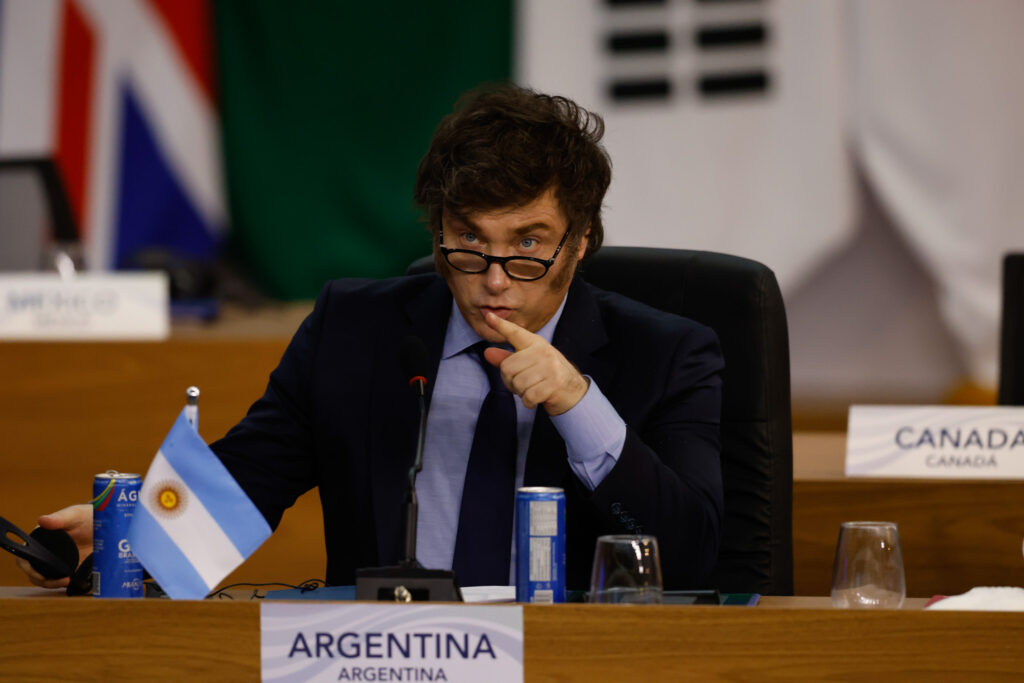
(photo Tânia Rêgo/Agência Brasil)
Progressive taxation of extremely wealthy individuals was described in the statement as “one of the main tools to reduce internal disparities, increase fiscal sustainability, promote budget consolidation, promote strong, sustainable, balanced growth and comprehensive and to advance the realization of the United Nations Sustainable Development Goals (SDGs)”. These 17 objectives, set to be achieved by 2030, aim eradicating poverty, combating climate change, promoting family farming, achieving zero hunger and ensuring universal access to clean water and basic sanitation, among others.
Conflicts in Gaza and Ukraine
The ongoing wars in Gaza and Ukraine also featured prominently in the G20 communiqué. The leaders condemned both conflicts and called for renewed efforts to secure peace in Eastern Europe and a comprehensive ceasefire in the Middle East.
“We welcome all relevant and constructive initiatives that support a comprehensive, just and lasting peace, in accordance with the Purposes and Principles of the UN Charter, to promote peaceful, friendly and good-neighborly relations between nations,” is part of the statement. reads.
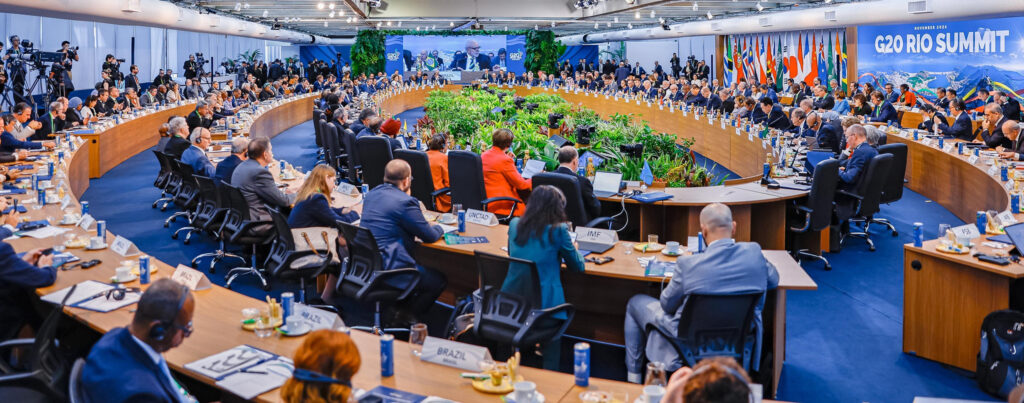
(photo: Ricardo Stuckert/President of Brazil)
This year’s summit marked the first time Brazil has hosted the annual meeting of the G20, a group that includes 19 countries and two regional blocs: the European Union and the African Union. Together, G20 members represent about two-thirds of the global population, produce 85% of global GDP and account for more than 75% of world trade. The Rio summit attracted 55 delegations from 40 countries and 15 international organizations. In addition to G20 members, several other countries participated as observers, taking part in discussions and bilateral meetings.
Alliance against hunger and poverty
The host country, Brazil, set the agenda for the conference, advocating a global alliance against hunger and poverty. The initiative has received commitments from 82 countries so far, with Brazilian officials hoping to reach 100 in total. Participating countries pledge to reduce hunger and poverty domestically, with some, such as Norway, committing additional funds to support public policies targeting these issues in developing regions.
When he launched the alliance, which aims to eradicate global hunger by 2030, President Luiz Inácio Lula da Silva delivered a stark message.
“In 2024, 733 million people worldwide remain undernourished – equivalent to the combined populations of Brazil, Mexico, Germany, the United Kingdom, South Africa and Canada facing hunger. In a world where military spending reaches $2.4 trillion, this is unacceptable. It is the duty of those gathered around this table to eliminate this shameful stain on humanity,” he declared.
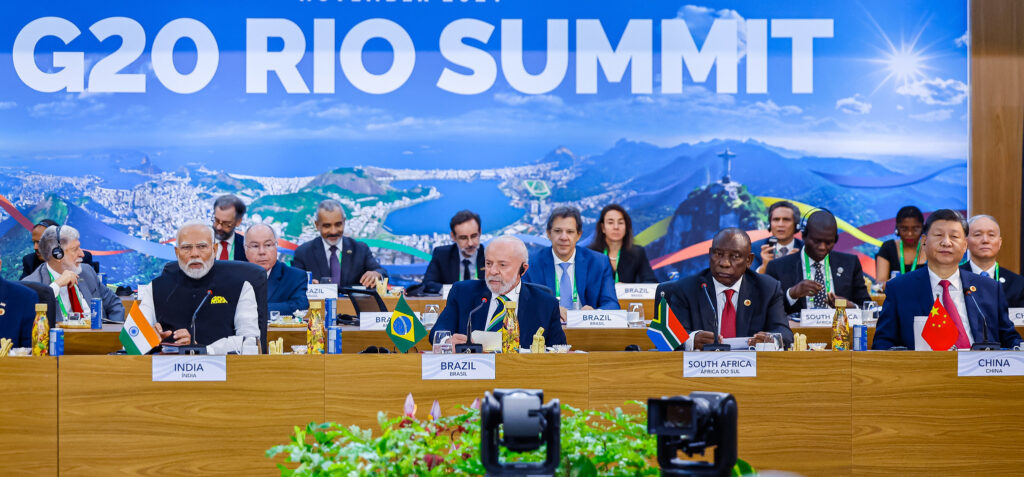
(photo: Ricardo Stuckert/President of Brazil)
Focus on global governance reform
Another key priority for Brazil was improving global governance structures. The final declaration calls for international institutions to be reformed to reflect the political, economic and social realities of the 21st century, ensuring greater representation, effectiveness and transparency.
The summit brought together influential global figures, including US President Joe Biden, China’s Xi Jinping and France’s Emmanuel Macron. The discussions took place at Rio’s Museum of Modern Art, providing a symbolic backdrop for international collaboration. The event will likely serve as one of President Biden’s last international engagements before he leaves office in January 2025, capping a 53-year career in public service.
Biden’s departure and Donald Trump’s return to the White House have already raised concerns within the international community, given Trump’s previous protectionist and anti-globalist stance during his first term and in his last election campaign. Whether such rhetoric will translate into action remains to be seen. Starting Wednesday, the next G20 presidency will move from Brazil to South Africa, the host country for next year’s summit.
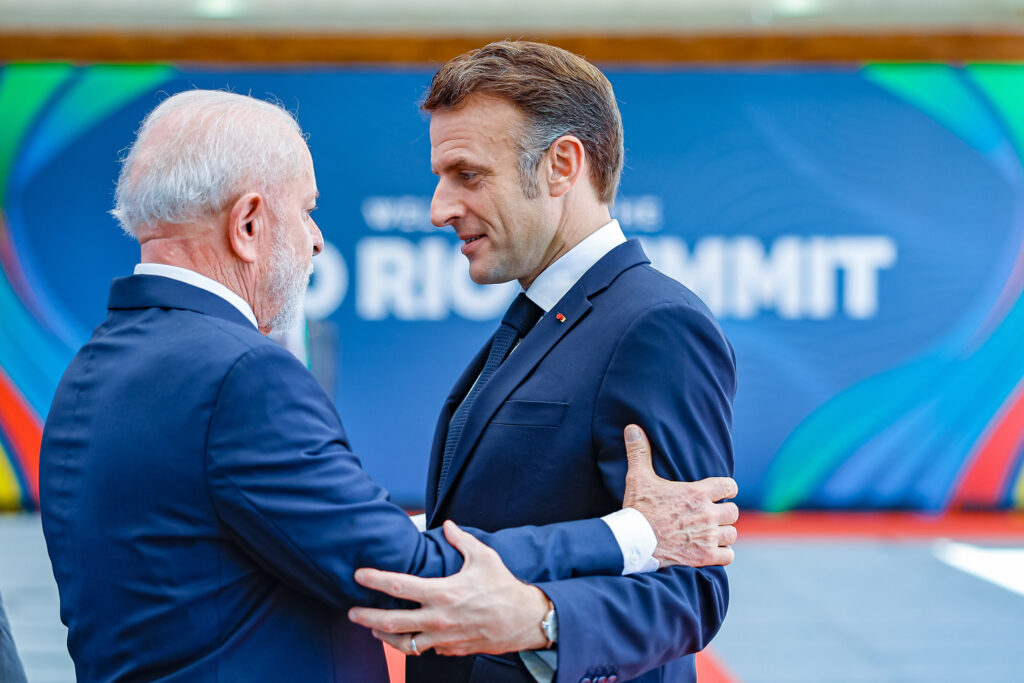
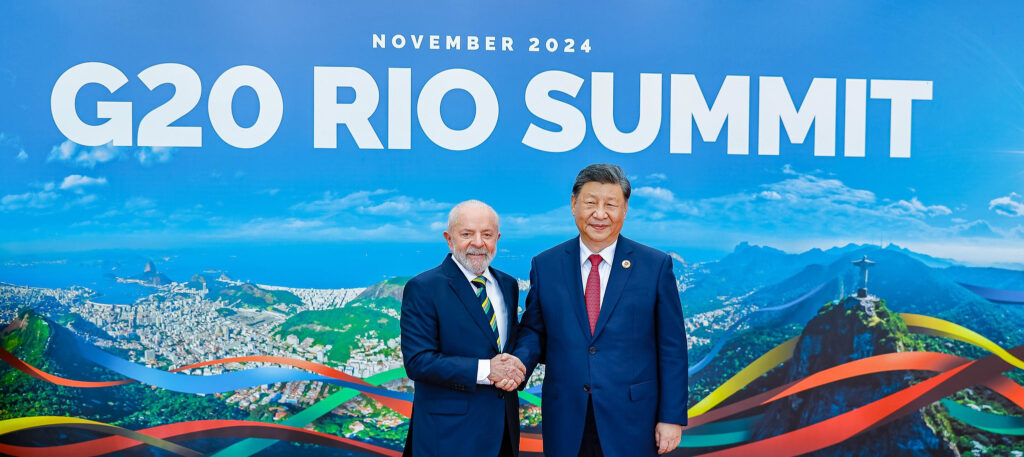
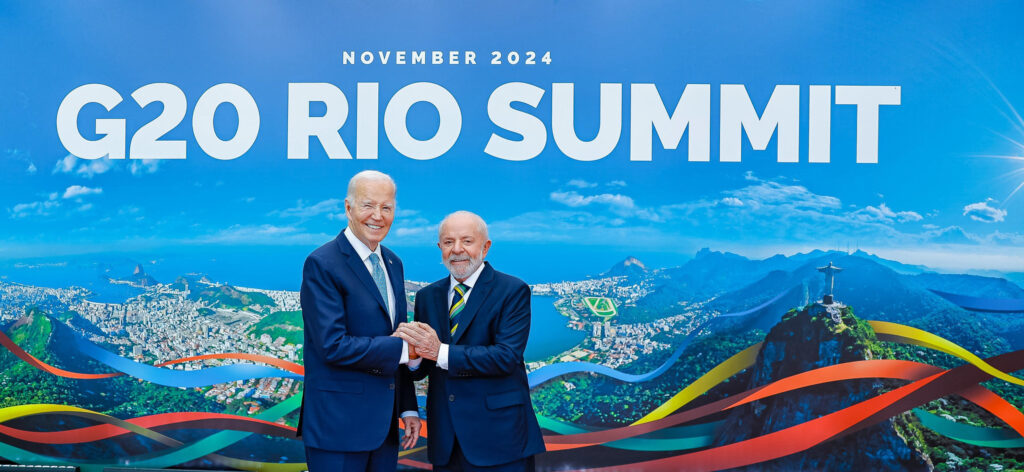
(photo: Ricardo Stuckert/President of Brazil)


